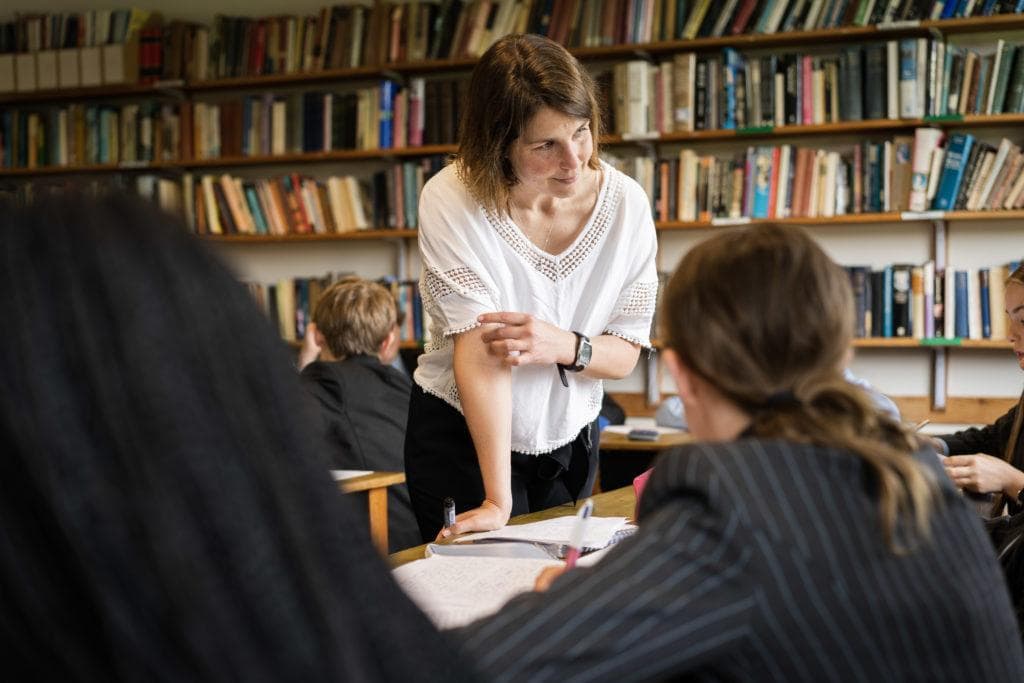Probing into the stories of the past and asking the hard – and fascinating – questions about why events happened, how lives were lived and how they were also lost.

Learning about history is not just about acquiring some of the most important analytical and communication skills, it is also about understanding how the past has shaped the present. History is about the imagination, putting yourself in the position of a medieval peasant during the Black Death and hoping, and praying, that you are among the lucky 40% who survived. It is about understanding how and why Stalin killed five or six times more people than Hitler, and why so few know this. It is about explaining why Britain was among the first major nation to exploit the African slave trade and why it was the first to stop it. History really is about getting deeply into highly emotional issues and events and getting to understand them, the key players and the way they are presented.
Lower School
Pupils study events from the Battle of Hastings to the Peasants’ Revolt in Year 7, and specialise on the way castle design changed over time. In Year 8 they look at the Reformation, the rule of Elizabeth, James I and Charles I and the Civil War; they specialise in slavery. Key skills, about source analysis and essay writing, underpin their studies
Middle School
In Year 9 pupils learn about the Industrial Revolution and totalitarianism in the 1930s. The course finishes with a comparative study of the two world wars. GCSE study skills are taught, making the transition to Year 10 that much easier. The Edexcel iGCSE course is taught in Years 10 and 11 which covers the Middle East, the Russian Revolution and twentieth century international relations.
“Thank you for being such a great teacher for the last three years. I have enjoyed my history lessons. Thanks you for all your help in preparing me to take my GCSE.” From a Middle School student
Sixth Form
A Level History provides an interesting and challenging course which will enhance your skills of analysis and ability to write persuasive, lucid arguments. It is a qualification which is well regarded by competitive universities whether you are applying for an Arts, Social Science or Science degree.
You will be encouraged by teachers who are working in their specialist areas. Courses are delivered using materials written by the department and supported by a wide range of relevant books.
You will be guided in the direction of further reading as your own interests develop. You will be encouraged to argue and debate both with your peers and teachers. Over time you will also be expected to work independently and become a self-sufficient learner. Most importantly you will cover some of the most fascinating and controversial aspects of modern History.
In Year 12 we study the history of Germany and West Germany from 1918-1989, including an investigation into the historical debate around the causes of World War II. This is accompanied by a paper that considers the Rise and Fall of Fascism in Italy c1911-1946. In Year 13 we go on to consider the relationship between Ireland and the Union c1774-1923. There is also a coursework module where students will produce an independent piece of work on a historical debate related to the Holocaust.
The exam board is Edexcel. An extensive revision programme is provided in the run up to exams.
“I have just been awarded a First Class degree in International History from the University of Leeds …and I truly believe that this would not have been possible without your continued support and encouragement.” Former A Level History student.
Exam results
The average of the results in History over the most recent three year period (2023, 2022, 2021) is:
| GCSE | |
| 9 | 29% |
| 9-8 | 63% |
| 9-7 | 73% |
| 9-4 | 98% |
| A Level | |
| A* | 15% |
| A* – A | 60% |
| A* – B | 93% |

